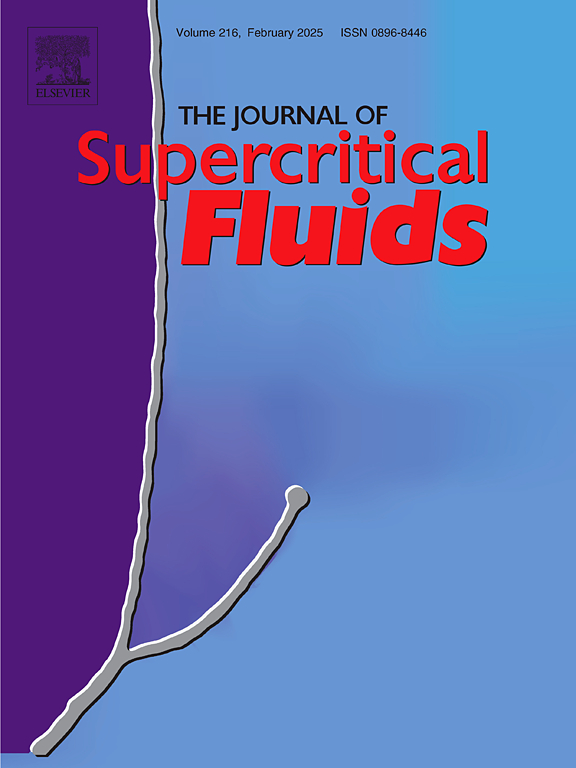Impact of cold source temperature on transcritical CO2 power cycle: Design point optimization and off-design performance analysis
IF 3.4
3区 工程技术
Q2 CHEMISTRY, PHYSICAL
引用次数: 0
Abstract
The transcritical CO2 (T-CO2) power cycle is regarded as one of the most promising alternatives to the steam power cycle in nuclear power plants. However, these plants often operate with transient cold source conditions, leading to deviations from the optimal design point and performance degradation. Therefore, this study examines a double recompression T-CO2 power cycle to optimize the design point pump inlet temperature and investigate part-load performance under cold source fluctuations. Results indicate that the lowest design point pump inlet temperature is optimal for low temperature cold sources and high load conditions to maximize thermal efficiency. When the system operates at 80 % load with a cold source temperature of 5 °C, the thermal efficiencies at the design point pump inlet temperature of 15 °C and 25 °C are 58 % and 56.93 %, respectively. In contrast, a moderate design point pump inlet temperature is better suited for accommodating wide fluctuations in operating conditions. A lower cold source temperature helps mitigate the reduction in thermal efficiency caused by load decreases. Furthermore, reducing the split ratio of low-temperature compressor can enhance thermal efficiency as the cold source temperature increases. These findings provide an effective approach to minimizing performance degradation in the T-CO2 power cycle under off-design conditions.
冷源温度对跨临界CO2动力循环的影响:设计点优化及非设计性能分析
跨临界CO2 (T-CO2)动力循环被认为是核电站中最有前途的蒸汽动力循环替代方案之一。然而,这些电厂经常在瞬态冷源条件下运行,导致偏离最佳设计点和性能下降。因此,本研究通过双再压缩T-CO2功率循环来优化设计点泵入口温度,并研究冷源波动下的部分负荷性能。结果表明,在低温冷源和高负荷工况下,最低设计点泵入口温度最优。当系统负荷为80% %,冷源温度为5 °C时,设计点泵入口温度为15 °C和25 °C时的热效率分别为58 %和56.93 %。相比之下,适度的设计点泵入口温度更适合于适应操作条件的广泛波动。较低的冷源温度有助于减轻因负荷降低而引起的热效率降低。此外,随着冷源温度的升高,降低低温压缩机的分流比可以提高热效率。这些发现为在非设计条件下最大限度地减少T-CO2功率循环中的性能下降提供了有效的方法。
本文章由计算机程序翻译,如有差异,请以英文原文为准。
求助全文
约1分钟内获得全文
求助全文
来源期刊

Journal of Supercritical Fluids
工程技术-工程:化工
CiteScore
7.60
自引率
10.30%
发文量
236
审稿时长
56 days
期刊介绍:
The Journal of Supercritical Fluids is an international journal devoted to the fundamental and applied aspects of supercritical fluids and processes. Its aim is to provide a focused platform for academic and industrial researchers to report their findings and to have ready access to the advances in this rapidly growing field. Its coverage is multidisciplinary and includes both basic and applied topics.
Thermodynamics and phase equilibria, reaction kinetics and rate processes, thermal and transport properties, and all topics related to processing such as separations (extraction, fractionation, purification, chromatography) nucleation and impregnation are within the scope. Accounts of specific engineering applications such as those encountered in food, fuel, natural products, minerals, pharmaceuticals and polymer industries are included. Topics related to high pressure equipment design, analytical techniques, sensors, and process control methodologies are also within the scope of the journal.
 求助内容:
求助内容: 应助结果提醒方式:
应助结果提醒方式:


